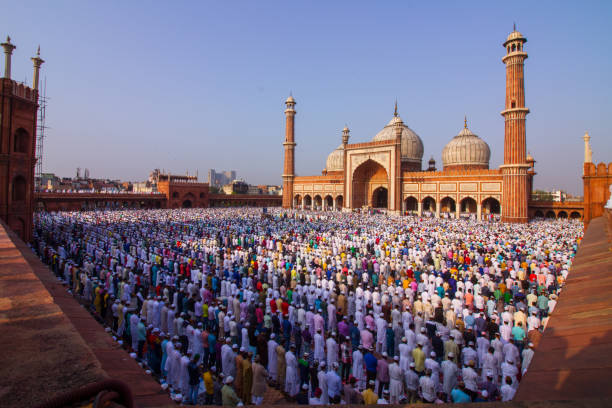The Waqf Board holds a significant place in India’s socio-religious landscape. Historically, Waqf, an Islamic endowment, has played a crucial role in supporting religious, educational, and charitable activities. This blog post delves into the history of the Waqf Board, the Waqf Board Act of India, and its evolution over time. By examining key milestones, notable personalities, and various challenges, we aim to provide a comprehensive understanding of this important institution.

I'm This Post
ToggleWhat is Waqf?
Waqf is a voluntary, permanent, and irrevocable dedication of property by a Muslim for any religious, pious, or charitable purpose recognized by Islamic law. The practice of Waqf has its roots in the early Islamic period, with the first known Waqf established by the Prophet Muhammad. Over time, Waqf became a widespread institution in the Muslim world, facilitating the construction of mosques, schools, hospitals, and other social welfare institutions.In India, the concept of Waqf was introduced by Muslim rulers and quickly integrated into the socio-economic fabric of the society. Waqf properties were established to fund various public welfare projects, ensuring that the benefits reached the community at large.
History of Waqf in India
Introduction of Waqf in India
The introduction of Waqf in India dates back to the early Islamic invasions. With the establishment of the Delhi Sultanate in the 12th century, Waqf became a prominent feature in the Indian subcontinent. The Mughal Empire further institutionalized Waqf, with many emperors endowing large tracts of land and properties for religious and charitable purposes.
Role During Different Eras
During the medieval period, Waqf properties were used to fund numerous public works, including the construction of mosques, madrasas, and hospitals. The Mughal rulers, in particular, were known for their generous endowments, which helped in the proliferation of Islamic education and culture.The colonial period brought significant challenges to the management of Waqf properties. The British administration’s policies often led to the mismanagement and loss of Waqf assets. However, the importance of Waqf remained intact, and efforts were made to protect and regulate these properties through various legislations.Post-independence, the Indian government recognized the importance of Waqf and took steps to formalize its management. The establishment of Waqf Boards was a crucial step in ensuring the proper administration and protection of Waqf properties.

Establishment of the Waqf Board
Need for Regulation
The need for regulation of Waqf properties arose due to widespread mismanagement and encroachments. The absence of a formal regulatory mechanism often led to the diversion of Waqf funds from their intended purposes. To address these challenges, the Indian government initiated the establishment of Waqf Boards.
Formation of Waqf Boards
The formation of Waqf Boards began in the early 20th century, with the aim of creating a centralized authority to oversee the management of Waqf properties. Each state in India was mandated to establish a State Waqf Board, responsible for maintaining a detailed record of Waqf assets and ensuring their proper utilization.
Waqf Board Act of India
Historical Background
The Waqf Act, first enacted in 1954, was a landmark legislation aimed at providing a legal framework for the administration of Waqf properties in India. The Act defined the powers and functions of the Waqf Boards, laid down procedures for the maintenance of Waqf records, and established mechanisms for resolving disputes.
Key Provisions of the Waqf Act
The Waqf Act of 1954, and its subsequent amendments, introduced several key provisions:
- Management and Administration: The Act outlined the structure and functioning of the Waqf Boards, detailing their responsibilities in managing Waqf properties.
- Protection of Waqf Properties: Measures were introduced to safeguard Waqf properties from encroachments and misuse. The Act empowered Waqf Boards to take legal action against encroachers.
- Financial Accountability: The Act mandated regular audits and financial reporting to ensure transparency and accountability in the management of Waqf funds.

Major Amendments
The Waqf Act has undergone several amendments to address emerging challenges and improve the efficacy of Waqf Boards. Notable amendments include the Waqf (Amendment) Act of 2013, which introduced stricter measures for the protection of Waqf properties and enhanced the powers of the Waqf Boards.
Views and Criticisms
Views of Well-Known Personalities
While many prominent personalities have supported the concept of Waqf, several have criticized its current implementation in India. Maulana Abul Kalam Azad, a key figure in the Indian independence movement, pointed out the inefficiencies and corruption within the Waqf Board system. Sir Syed Ahmad Khan, despite advocating for the protection of Waqf properties, acknowledged the challenges in their management and the need for reforms. Other critics argue that the Waqf system, as it stands, is incompatible with the democratic and secular fabric of India.
Criticisms and Challenges
Despite the significant strides made in regulating Waqf properties, the Waqf Board and the Waqf Act have faced several criticisms:
- Management Issues: The administration of Waqf properties has often been marred by inefficiencies and lack of transparency. Cases of mismanagement and corruption have been reported, undermining the intended purposes of Waqf.
- Corruption and Mismanagement: Corruption within Waqf Boards has been a persistent issue. Instances of embezzlement of funds and illegal sale of Waqf properties have been documented, leading to significant financial losses.
- Judicial Interventions: The judiciary has played a crucial role in addressing disputes related to Waqf properties. Several landmark judgments have shaped the legal landscape of Waqf management, ensuring the protection of these assets.

Impact and Significance
Social and Economic Impact
The Waqf system, while intended to support public welfare, has often failed to deliver on its promises. Critics argue that Waqf properties are frequently underutilized or mismanaged, leading to economic inefficiencies. The lack of proper oversight has resulted in numerous instances where the intended beneficiaries of Waqf endowments do not receive the support they need. This mismanagement not only deprives the community of valuable resources but also undermines public trust in the institution.
Cultural and Religious Significance
While Waqf holds cultural and religious significance, its current state raises questions about its relevance in a democratic and secular India. The preferential treatment of Waqf properties, governed by religious laws, can be seen as inconsistent with the principles of equality and secularism enshrined in the Indian Constitution. This has led to debates about whether the Waqf system should be reformed to align more closely with democratic values and principles.
Future Challenges and Opportunities
The future of Waqf management in India is fraught with challenges and opportunities. Addressing issues of corruption and mismanagement remains a top priority. There is also a need to leverage modern technology for better record-keeping and monitoring of Waqf properties. Collaboration with civil society organizations and community stakeholders can help in devising innovative solutions to these challenges.
Conclusion
The Waqf Board and the Waqf Board Act of India play a pivotal role in the management and protection of Waqf properties. Despite the challenges, the institution has made significant contributions to social welfare and cultural preservation. By addressing existing issues and implementing recommended reforms, the Waqf Board can continue to serve the community effectively and uphold the legacy of Waqf in India..

FAQs
Waqf is a voluntary, permanent, and irrevocable dedication of property by a Muslim for any religious, pious, or charitable purpose recognized by Islamic law.
Waqf properties in India are managed by State Waqf Boards, which are responsible for maintaining records, overseeing the administration, and ensuring the proper use of Waqf assets.
The Waqf Board is responsible for the management and administration of Waqf properties, protecting these assets from encroachments, and ensuring financial accountability.
The Waqf Board faces challenges such as corruption, mismanagement
Reference
1. [What is a Waqf board, and what are its governing principles?]
2. [“Once a Waqf, always a Waqf”: How Waqf Boards have become 3rd biggest land owners in India]
3. [What is Waqf? How does it operate?]
4. [Waqf: An Overview of Its History and Functioning]


1 thought on “Waqf Board: History & The Waqf Board Act of India – Key Insights from 1947 to Present”